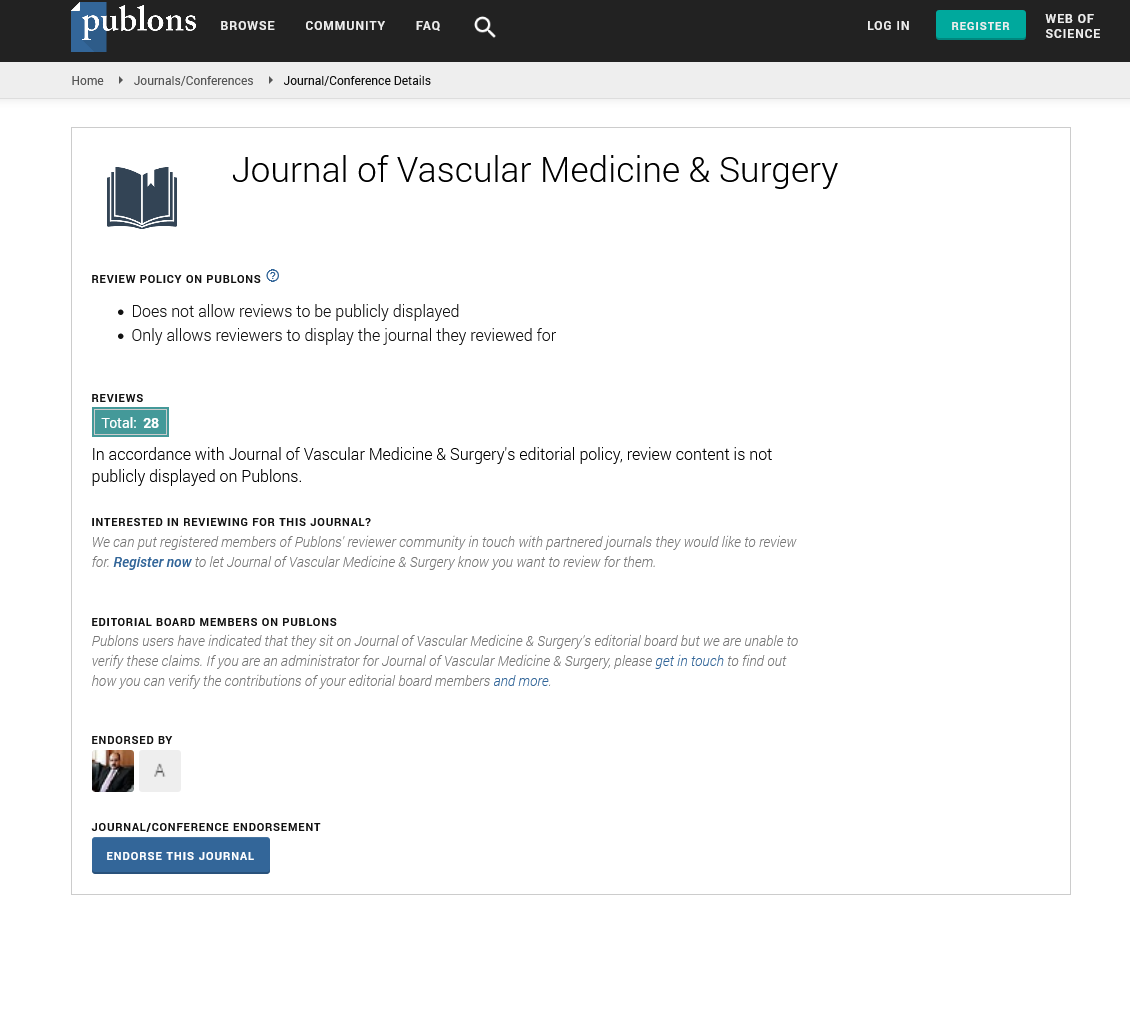Indexed In
- Open J Gate
- Academic Keys
- RefSeek
- Hamdard University
- EBSCO A-Z
- OCLC- WorldCat
- Publons
- Euro Pub
- Google Scholar
- SHERPA ROMEO
Useful Links
Share This Page
Journal Flyer

Open Access Journals
- Agri and Aquaculture
- Biochemistry
- Bioinformatics & Systems Biology
- Business & Management
- Chemistry
- Clinical Sciences
- Engineering
- Food & Nutrition
- General Science
- Genetics & Molecular Biology
- Immunology & Microbiology
- Medical Sciences
- Neuroscience & Psychology
- Nursing & Health Care
- Pharmaceutical Sciences
Abstract
Impairment of Pulmonary Vasoreactivity in Response to Endothelin-1 In Patients With Chronic Obstructive Pulmonary Disease (COPD)
Duong-Quy S, Dao P, Hua-Huy T, Le-Dong NN and Dinh-Xuan AT
Background: Pulmonary hypertension secondary to COPD is characterized principally by impairment of vasoreactivity and vascular remodeling. While the structural changes have been described in all stages of COPD, the impairment of vasoreactivity in response to ET-1, a potent vasoconstrictor, has not been well understood.
Materials and methods: Proximal pulmonary arteries were obtained from non-smokers, smokers with normal lung function, and COPD patients who underwent lung resection for other diseases (n=6 in each group). Pulmonary arterial contraction induced by ET-1 was assessed without or with the presence of ET-1 receptor antagonists (BQ- 123 and BQ-788). Expressions of ET-1 receptors were measured by immunohistochemistry, western blot, and qRTPCR.
Results: ET-1-induced pulmonary arterial contraction increased significantly in COPD patients in comparison with control subjects and non-COPD smokers (P<0.05) and the use of ET-1 receptor antagonists could not prevent this contraction. The hypercontraction was not associated with the increase of ET-1 and ET-1 receptors expression in pulmonary arterial vessels.
Conclusion: In patients with COPD, pulmonary arterial contraction induced by ET-1 has increased significantly and could not be prevented by using ET-1 receptor antagonist alone. This alteration might be related to the upreguation of other signalling pathways in pulmonary arterial vessels of COPD patients.

